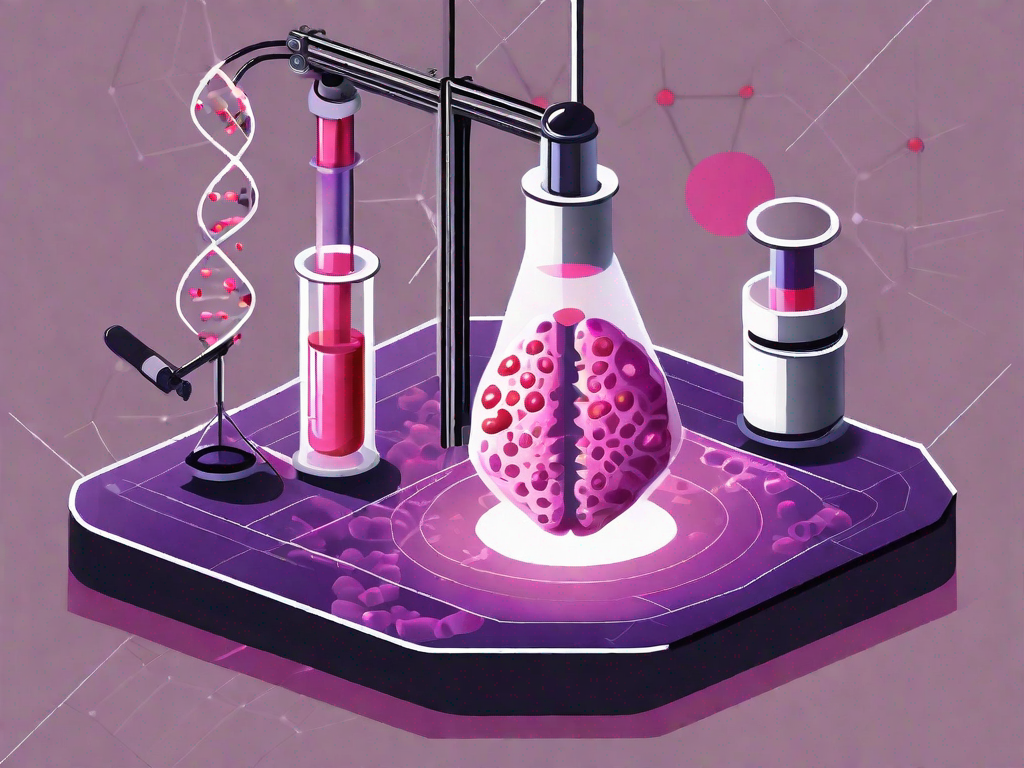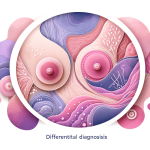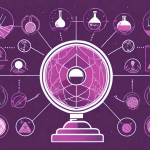This article highlights the transformative role of advanced cancer blood tests in early diagnosis and management. Emphasizing the critical importance of early detection, it explains how these non-invasive blood tests, also known as liquid biopsies, are revolutionizing cancer care. By detecting biomarkers like circulating tumor cells or DNA in the blood, these tests offer a less intimidating and more accessible option compared to traditional methods like tissue biopsies. This progress in cancer detection enhances patient outcomes and treatment success, as early intervention often leads to less aggressive treatments and better survival rates. The article underscores that while challenges like false positives/negatives exist, ongoing research and technological advances continue to refine these tests’ accuracy. In essence, this breakthrough in blood-based testing marks a significant leap forward in oncology, offering hope for early detection and improved patient care.
The thought of cancer detection can be daunting. However, advancements in cancer blood tests are revolutionizing the way we approach early diagnosis, offering hope and increasing the chances of successful treatment. Understanding the importance of early cancer detection is the first step in appreciating the impact of these groundbreaking tests.
Understanding the Importance of Early Cancer Detection
When it comes to cancer, time is of the essence. Detecting cancer at an early stage can significantly improve the outcome for patients. Early diagnosis allows for more effective treatment options, potentially reducing the need for aggressive therapies. Moreover, it provides patients with peace of mind, knowing that their cancer is being actively monitored.
Early cancer detection not only saves lives but also enhances the quality of life for patients. By catching cancer in its early stages, medical professionals can intervene before the disease progresses and causes severe symptoms or complications. This early intervention can help preserve organ function and prevent the spread of cancer to other parts of the body.
Furthermore, early detection allows for a more targeted and personalized treatment approach. Each cancer is unique, and by identifying it early, healthcare providers can develop a treatment plan that is tailored to the specific characteristics of the tumor. This individualized approach increases the chances of successful treatment outcomes, giving patients a fighting chance against cancer.
The Role of Blood Tests in Cancer Diagnosis
Traditionally, cancer diagnosis involved invasive procedures, such as biopsies and imaging scans. These procedures often required patients to undergo uncomfortable or even painful interventions. However, advancements in medical technology have revolutionized cancer diagnosis, with blood tests emerging as powerful tools in the early detection of various cancers.
Blood tests, also known as liquid biopsies, analyze specific biomarkers present in the bloodstream. These biomarkers can include circulating tumor cells, cell-free DNA, or proteins that are indicative of cancer. By detecting these biomarkers, blood tests provide valuable insights into the presence and progression of cancer.
One of the significant advantages of blood tests is their non-invasive nature. Unlike traditional biopsies, which require the removal of tissue samples, blood tests only require a simple blood draw. This makes them more accessible and less intimidating for patients, encouraging more people to undergo regular cancer screenings.
Moreover, blood tests can be used to monitor cancer progression and treatment response over time. By analyzing changes in biomarker levels, healthcare providers can assess the effectiveness of a chosen treatment and make necessary adjustments if needed. This real-time monitoring allows for a more proactive and personalized approach to cancer management.
The Impact of Early Detection on Cancer Prognosis
Early detection can significantly improve cancer prognosis. By identifying cancer in its infancy, medical professionals can intervene promptly and tailor treatment plans to target the disease more effectively. This early intervention can help prevent the cancer from spreading to other organs or becoming more aggressive.
Furthermore, early detection often leads to less invasive treatment options. When cancer is caught early, it is more likely to be confined to a specific area or organ, making it easier to remove surgically or treat with less aggressive therapies such as radiation or targeted drug therapies. This not only improves the chances of successful treatment but also reduces the potential side effects and complications associated with more aggressive treatments.
In addition to improving treatment outcomes, early detection also plays a crucial role in long-term survival rates. When cancer is detected early, the chances of complete remission or long-term disease control are significantly higher. This means that patients have a better chance of living a cancer-free life or managing their cancer as a chronic condition.
Overall, early cancer detection is a game-changer in the fight against this devastating disease. By utilizing advanced diagnostic tools like blood tests and promoting regular screenings, we can catch cancer at its earliest stages and provide patients with the best possible chances of successful treatment and long-term survival.
The Evolution of Cancer Blood Tests
Over the years, cancer blood tests have witnessed significant advancements, transforming the landscape of cancer detection.
Traditional Methods of Cancer Detection
Prior to the emergence of blood tests, cancer detection predominantly relied on invasive methods, such as biopsies and imaging scans. While these methods are effective, they are often time-consuming and carry certain risks. The evolution of blood-based testing offers a more accessible and efficient alternative.
The Shift Towards Blood-Based Testing
Blood-based testing has gained momentum due to its potential for early cancer detection. These tests analyze biomarkers, such as circulating tumor cells and genetic mutations, present in the blood. The ease of sample collection and the ability to monitor the progression of cancer over time make blood-based testing a game-changer in the field of oncology.
The Science Behind Advanced Cancer Blood Tests
Behind the scenes, advanced cancer blood tests rely on the intricate interplay of biomarkers and the latest technological innovations.
The Role of Biomarkers in Cancer Detection
Biomarkers play a crucial role in cancer detection. These are substances or genetic alterations that are present in the blood when cancer is present. By analyzing specific biomarkers, such as tumor DNA or proteins, these advanced tests can detect cancer even before symptoms manifest, offering patients an early glimpse into their health.
The Technology Powering Advanced Blood Tests
Advanced blood tests employ sophisticated technologies, such as next-generation sequencing and liquid biopsy, to detect even the faintest traces of cancer-related biomarkers. These high-tech tools enable accurate analysis and interpretation of the complex biological signals present in the blood, bringing us closer to completely non-invasive cancer detection.
The Benefits of Advanced Cancer Blood Tests
The benefits offered by advanced cancer blood tests are nothing short of revolutionary.
Increased Accuracy and Early Detection
Advanced blood tests boast an impressive accuracy rate in cancer detection. By identifying cancer at its earliest stages, these tests empower healthcare professionals to take immediate action, potentially saving lives. Accurate and early detection allows for timely intervention, leading to improved treatment outcomes and a higher chance of long-term survival.
Non-Invasive Testing and Patient Comfort
In addition to their accuracy, advanced cancer blood tests offer a non-invasive alternative to traditional diagnostic methods. Unlike biopsies, which can be uncomfortable and carry certain risks, blood tests require only a simple blood draw. This non-invasive approach not only enhances patient comfort but also encourages individuals to undergo regular screenings without hesitation.
Challenges and Limitations of Cancer Blood Tests
While advanced cancer blood tests bring numerous benefits, it is important to acknowledge the challenges and limitations.
Potential False Positives and Negatives
Advanced cancer blood tests can occasionally present false positive or negative results. False positives may lead to unnecessary anxiety and further testing, while false negatives can potentially miss cancerous cells, delaying diagnosis. Ongoing research is necessary to refine these tests and minimize the occurrence of such errors.
The Need for Further Research and Validation
As with any emerging technology, continued research and validation are imperative to harness the full potential of advanced cancer blood tests. Conducting large-scale studies and collaborating with medical professionals worldwide will ensure that these tests meet the highest standards of accuracy, making them reliable tools in the fight against cancer.
In conclusion, advancements in cancer blood tests have the potential to be a game-changer in early detection. By understanding the importance of early cancer detection and exploring the evolution, science, benefits, and challenges surrounding these tests, we can appreciate the immense impact they have on patients’ lives. While there are still hurdles to overcome, the promise of accurate, non-invasive, and early cancer detection brings hope and increased chances of successful treatment outcomes. Together, let us continue advocating for further research and utilization of these remarkable advancements in the battle against cancer.






